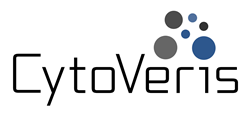
FARMINGTON, Conn. (PRWEB)
February 07, 2023
CytoVeris Inc., a medical device company developing AI-powered cancer imaging technologies to enable more precise surgical decision-making and improve patient outcomes, today announced the publication of preclinical data showing the potential of its TumorMAPTM system to detect cancer. The system is based on a proprietary Multi-Spectral Tissue Auto-Fluorescence Imaging (MS-TAFI) technology that analyzes the “optical fingerprint” of tissue and deciphers its intrinsic biomolecular and morphological characteristics without the use of dyes or imaging agents. The study is published in the peer-reviewed journal Archives of Pathology and Laboratory Medicine. This technology has the potential to evaluate resection margins intraoperatively during surgical procedures.
“It is remarkable to witness the CytoVeris TumorMAP system accurately detecting cancer in near-real time in a label-free manner,” said Malini Harigopal, MD, Director of Immunohistochemistry Laboratory and Breast Pathology Fellowship Director at Yale School of Medicine and corresponding author of the paper. “We are excited to be part of this study and its promising preliminary results. Presently, pathologists spend considerable time determining the distance of the invasive or in situ carcinoma from the true margin to better assist surgeons in re-excising close or positive margins in breast cancers. This technology has the capability to check margin status in vivo right in the operation suite and may impact margin re-excision rates in the future more accurately. This study, though preliminary, is highly innovative with far-reaching applications for other organ sites where margin evaluation is critical.”
Minghao Zhong, MD, PhD, Associate Professor of Pathology at Yale School of Medicine and co-author of the paper said, “We are thrilled to contribute to the preclinical validation of the CytoVeris device. In addition to its intended application in surgery, this device shows its utility for use in processing and prioritizing specimens during frozen section and in the pathology grossing room.”
Approximately 300,000 women in the United States are diagnosed with breast cancer each year, and a significant number of these patients undergo breast-conserving surgery (BCS) as part of the standard of care for the treatment of the disease. Repeated surgery is necessary for 20 to 35 percent of breast conservation surgeries due to the absence of any adjunctive, accurate, and objective tool in the surgeon’s hand that can be used for real-time margin assessment and to achieve the desired balance of oncologic and cosmetic outcomes. This innovative application of AI-powered imaging assists surgeons in accurately identifying margin status intraoperatively.
“Our innovative platform technology marries AI with advanced imaging and has the unique flexibility to be applied for tissue identification,” said Rishikesh Pandey, Ph.D., Chief Scientist of CytoVeris. “We are very passionate about our platform technology, committed to improving outcomes of oncologic patients, and excited to have our first preclinical study published in this prestigious journal.”
CytoVeris was founded on the vision that, by leveraging advanced optical imaging and artificial intelligence, surgeons will have the ability to discern a specific tissue type where it matters most – in the operating room,” said Dr. Alan D. Kersey, President and CEO of CytoVeris. “This study demonstrates the potential for our technology to improve the precision of breast cancer resection, but we won’t stop there. We are committed to addressing the needs of other large and growing oncologic markets as well, including bladder and prostate cancers.”
About CytoVeris:
With a passion for science and compassion for cancer patients, CytoVeris is leveraging the convergence of powerful multispectral imaging technology, knowledge of intrinsic biochemical attributes of tissue, and explainable artificial intelligence to bring new capabilities into the hands of surgeons to improve resection quality. CytoVeris proprietary Multi2-Spectral Auto-Fluorescence Imaging (MS-AFI) system, will assist cancer surgeons to discern target tissue in real-time during surgery and as a result will increase the probability of successful cancer surgery and outcomes in open, minimally invasive surgery and robotically assisted procedures. To learn more, visit http://www.cytoveris.com.
Share article on social media or email:

